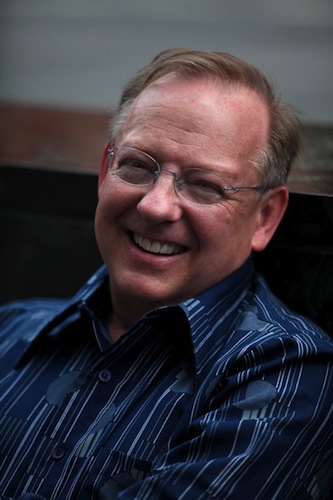Philharmonia Baroque’s worthy advocacy fails to make a case for Rossi’s music

Sunday afternoon at the Logan Center the Philharmonia Baroque Chamber Players and Chorale closed the Early Music part of the University of Chicago Presents’ season. Longtime Philharmonia director Nicholas McGegan provided solid musical leadership throughout the afternoon, but this could not compensate for the monotonous repertoire on offer.
Sunday’s concert was entitled “Sessions: Italian Baroque Music from the Jewish Ghetto,” a program developed as part of the Philharmonia’s “Jews & Music Initiative,” which launched in March 2015. “Sessions” is itself another Philharmonia initiative—a 90-minute performance format that aspires to combine music with social, political, and artistic history in what the Philharmonia’s website calls a “guided and deconstructed tour.”
The performance focused on the music of Salamone Rossi (ca. 1570-1630), identified in opening remarks by UC Berkeley scholar Francesco Spagnolo as the “first outstanding Jewish composer.” While this may be the case, ultimately Rossi’s unimaginative music made a good case for why he is largely still known only to early-music cognoscenti. Mini-lectures from Spagnolo and conversations between him and McGegan punctuated the intermission-less concert, and while erudite and at times quite interesting, these disrupted the flow of the performance more than they facilitated its appreciation.
The musical portion began with five Rossi selections, drawn from the various settings for which he composed: the synagogue, the aristocratic court, and for an instrument then in its early ascension—the violin. The Chorale singers made a compelling ensemble, singing with a natural blend and excellent balance, particularly in the interweaving lines of the madrigal “Vedrò’l mio sol.” At times one wanted a more generous acoustic for the vocalists than the dry Logan venue provided, but the Chorale members’ resonant voices compensated admirably.
A small instrumental consort of two violins, cello, theorbo, and harpsichord made consistently adept contributions. As one would expect of seasoned Philharmonia members, they fully inhabited the music’s historical idiom, taking a gestural approach to phrasing and making the ubiquitous ornamentation sound spontaneous and improvisational. McGegan made notably refined contributions leading from the harpsichord, yet, even so, one could not escape the lack of harmonic daring in Rossi’s music.
Soprano Sherezade Panthaki joined the Philharmonia musicians for a set of Benedetto Marcello’s music and further selections of Rossi. Hers is a luminous, warm instrument that was well suited to the early 17th-century fare. She lent the Rossi madrigal “Ohimè se tanto amate” a sighing, breathless quality, and gave the melismas of his “Cor mio deh non laguire” acrobatic treatment.
Music of Monteverdi was included in the program for historic reasons that seemed a stretch. As Spagnolo explained, Rossi apparently had a sister, about who very little is known except that she was a singer. He and McGegan together speculated that she may have been part of the premiere of Orfeo, and on this basis included two Monteverdi selections: his Laudate Dominium and the Prologue from Orfeo.
These provided some sorely needed variety (sufficient reason for their inclusion) and left little mystery why Monteverdi’s music has persisted through the centuries while Rossi’s requires rehabilitation and academic dressing up to sustain interest. Panthaki was again excellent in these works, particularly the Prologue, which she imbued with a sense of bardic exhortation.
The program closed with a final set of Rossi selections. Four brief instrumental movements received elegant readings from the Chamber Players, and two final vocal numbers in a theatrical vein elicited muted chuckles from the audience. One left Sunday’s performance with a sense of having done one’s due diligence on Salamone Rossi; further research is probably not required.
The next University of Chicago Presents concert features the Montrose Trio at Mandel Hall 7:30 p.m. April 20. The program includes Turina’s Trio No. 2 in B Minor, Beethoven’s Trio in E-flat Major, and Mendelssohn’s Trio No. 2 in C Minor. https://chicagopresents.uchicago.edu/
Posted in Performances





